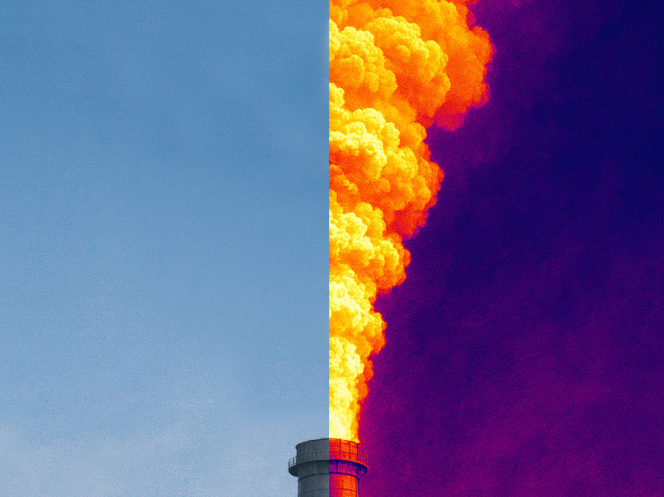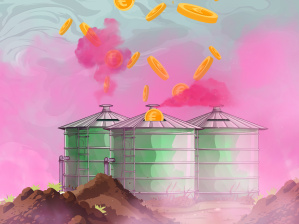Methane Unmasked

An investigation by the Changing Markets Foundation and Deutsche Umwelthilfe has found significant methane leaks at two Danish biogas plants, raising urgent questions about the climate credentials of so-called ‘green’ energy projects tied to the dairy sector.
The methane emissions were detected using industry-standard instruments, including an optical gas imaging camera and trace gas analyser, conducted by a thermo-imaging expert.
Main findings:
-
- At the Shell-owned Nature Energy plant in Videbæk (formerly part-owned by Arla), methane concentrations reached over 5,000 parts per billion (ppb), more than double the regional atmospheric average (2,077 ppb).
- The leak was observed on consecutive days at different times of day, with the measuring instruments capturing both the methane levels and the source of the leak from a compressor stack –indicating intentional rather than accidental venting.
- At Arla’s Arinco processing facility, originally linked by a pipeline to the Vidabæk plant, we filmed a methane release from a chimney.
- A Freedom of Information request by Greenpeace Denmark shows the Videbæk plant has a record of significant to major leaks, and that mismanagement of documentation on the feedstock used has allowed unsubstantiated sustainability claims to be passed down to consumers. However, some information about agricultural feedstocks was withheld.
- At the Tønder biogas plant, one of Europe’s largest, we detected atmospheric methane levels outside the facility, spiking at nearly 35,000 ppb, around 16 times higher than background levels. While the source couldn’t be pinpointed, such elevated levels raise serious concerns about methane leakage in the region.
Denmark is one of the largest biogas producers per capita in Europe. In 2023, the country introduced regulations aimed at reducing methane leaks at biogas plants. As many countries and companies turn to biogas and biomethane as ‘green’ solutions to agricultural emissions and an alternative to fossil gas, gaps in current policies must be recognised and addressed.
You might also like...

Hot Money: 40 Financial Institutions are funding a climate-changing agri-methane footprint
This report focuses on the 20 investors and 20 banks that are funding the methane generating activities of 15 of the leading meat and dairy companies worldwide. Collectively these financial institutions fu...

Emissions Impossible: How emissions from big meat and dairy are heating up the planet – Methane Edition
This joint report with the Institute for Agriculture and Trade Policy (IATP) for the first time estimates the methane emissions of five of the largest meat and ten of the largest dairy companies.

Biogas in the EU: A policy and financial analysis – Profundo report
A policy and financial analysis by Profundo of EU policies and the policies of the UK, Denmark, Germany, Ireland, the Netherlands, Poland and Romania, commissioned by the Methane Matters Coalition.